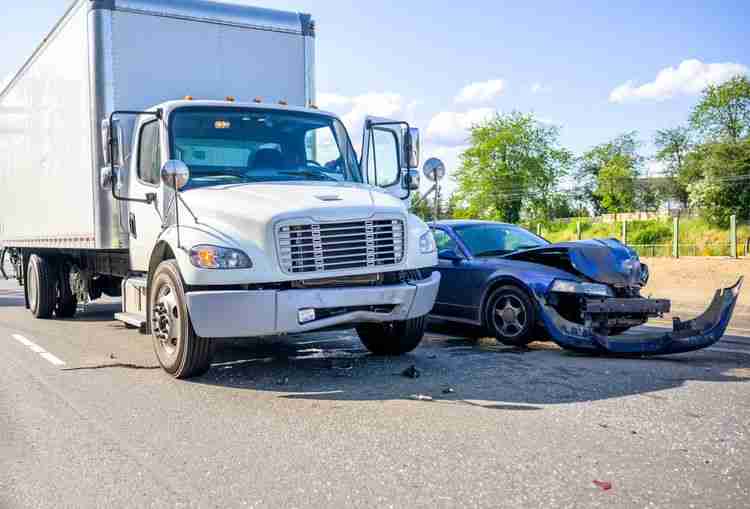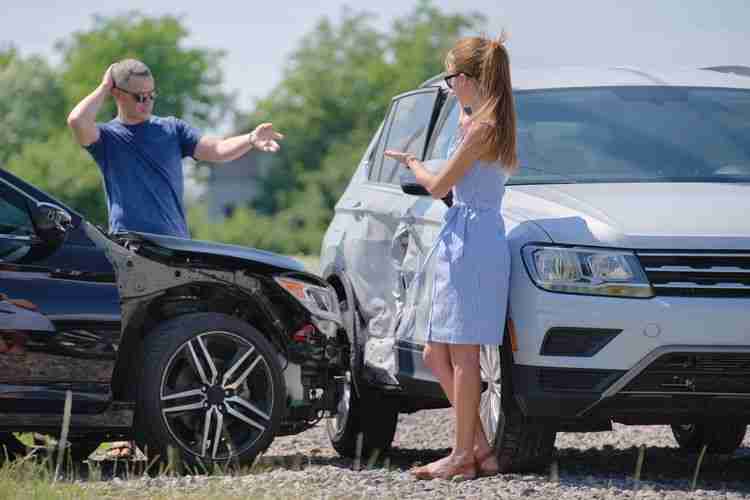Every user of a Georgia highway, byway, or road should expect to exercise the same care, reasoning, and prudence as expected of every person on the road. In this dream world, every driver is considerate, follows the laws, and is cognizant of all other drivers. In the real world in 2023, it is not quite like that. We are all expected to follow certain Duty of Care guidelines that make the roads safe for all of us. This duty applies to all motor vehicle drivers, motorcyclists, bicyclists, and even pedestrians. There are 14 chapters in the GA Motor Vehicles and Traffic guidelines and hundreds of subchapters under those. These include rules, regulations, exceptions, and penalties. It can be overwhelming to identify an area that applies to your case. Without experience, it can be very difficult to prove negligence. The personal injury experts at The SHElaw firm® have that experience and expertise.
The Georgia Driver’s Duty of Care
Focus on Driving
Distracted Driving has taken the number one position on the graph for the cause of traffic accidents. Texting while driving is a national crisis. Decatur has a No-Texting law; enforcing that law is difficult for police. Texting is not the only culprit under the distracted driving heading. Other distracted driving charges may be for:
- Reading or responding to E-mails, texts, or any other electronic communication
- Viewing videos on a cell phone or car entertainment center
- Personal grooming: applying makeup and lipstick, fixing hair, or checking appearance
- Focusing on the passenger while engaging in conversation, or altercation with them
- Looking at GPS or a map on a cell phone or car information center
- Focusing on eating or drinking
- Adjusting car entertainment center to get station or channel desired
- Disciplining the children in the car
- Distracted by thoughts or ideas unrelated to driving
- Falling asleep
- Reckless Driving
- Speeding – The higher the rate of speed, the harder the vehicle becomes to control and especially to stop. Not obeying the posted speed limits is a factor in many accident cases.
- Aggressive Driving – Behaving without concern for others on the road. Swerving, tailgating, passing on solid yellow lines, and repeatedly failing to use turn signals when changing lanes are all examples of aggressive driving.
- Road Rage – When a motorist exhibits extreme anger to minor incidents on the road. Blasting of the car horn or even flipping the middle finger are common occurrences on Decatur roads. Certain individuals tend to overreact to these minor gestures. They will pursue the offending vehicle aggressively and threateningly. They may try to get the driver to stop for a one-to-one confrontation.
When driving a 3,000 – 6,000 pound vehicle on public roads, focus fully on that drive and be defensive of the acts of others. Trouble ensues when every driver does not follow this duty of care.
Driving With Sound Body and Mind
This duty of care includes the all too familiar Driving Under the Influence and also other forms of physical and mental negligence. To determine if any of these play into your accident defense is imperative.
Elderly Driving Past Their Capability
There is no specific age when a person’s reflexes and decision-making abilities necessary to operate a vehicle decline. License renewal is every eight years for ages 19-59 and renews every five years at age 60. After age 64, a vision test is mandatory. But an eye doctor can complete a form certifying that is unnecessary. A physician can advise an elderly patient against driving for physical or cognitive reasons, but seldom is the licensing bureau notified. The individual may not heed the doctor’s warning.
Driving While Injured
Many accidents have occurred due to a driver having pre-existing injuries which should have kept him from being a driver. Once we establish these injuries existed before the accident, they almost always claim they were driving themselves to the Emergency Department.
Driving Against the Advice of a Physician
It is not unusual to discover that the driver has had a recent surgery or repair and is not following the physician’s order to wait two weeks before they drive. Now they are driving on day one post-op. Physicians and surgeons understand that everyone wants to return to independence and give the OK as soon as it is medically safe.
Driving under the Influence
Driving under the influence of alcohol, drugs, or a combination of both is illegal in Decatur. DUI is dangerous, reckless, and always considered intentional. A driver knows he is driving after consuming alcohol, even if he thinks he has not had enough for it to affect his driving ability. Inform the responding officer if you are in an accident and suspect the other driver is under the influence. They will evaluate the driver for signs of impairment and perform the necessary field sobriety tests. They will check the BAC. The officer will arrest the driver then if he feels they are under the influence of alcohol or drugs. Blood tests are needed to identify the drug.
Managing the roads and interstates of Georgia requires logical thinking and the physical ability to accomplish those plans. Driving in a lessened state of any type than full awareness is very dangerous.
Maintaining a Valid Driver’s License
Drivers must be licensed properly to operate a motor vehicle. A specialized license is necessary for driving a large commercial truck, a motorcycle, or an emergency vehicle. Youths aged 16-17 must also have a provisional license prior to getting a Class C license at age 18. License renewal is every eight years for drivers with a clean history. Driver’s license suspension or loss of driving privileges by The Parole and Probate Court changes that. Each infraction on the driver’s record affects the options for renewal. An inaccurate or even missing license may not be enough to be considered negligent. But if an intentional act, when you add it to other infractions it may show a pattern of maliciousness.
In Georgia, we follow a comparative negligence standard. Simply put, each driver usually has some degree of fault in a vehicle accident, and the blame is assigned appropriately. Financial responsibilities for the damages are determined based on these percentages. To attempt to prove negligence, the other driver must be close to 100% at fault. They must also be negligent in their duties on the road. It can be overwhelming to uncover some of the violations of duty. One effective method is conducting witness interviews with a well-prepared set of questions. There are usually numerous videos to review looking for useful information. Our auto accident lawyers at The SHElaw firm® have extensive experience with negligence cases and know what to look for and where to find the information to help you win your case. Punitive damages can be crucial. We have what it takes to get those wins for you. Contact The SHElaw firm® online or at 470-788-8930 as soon as possible after your accident, so we can get started while the evidence is fresh.









